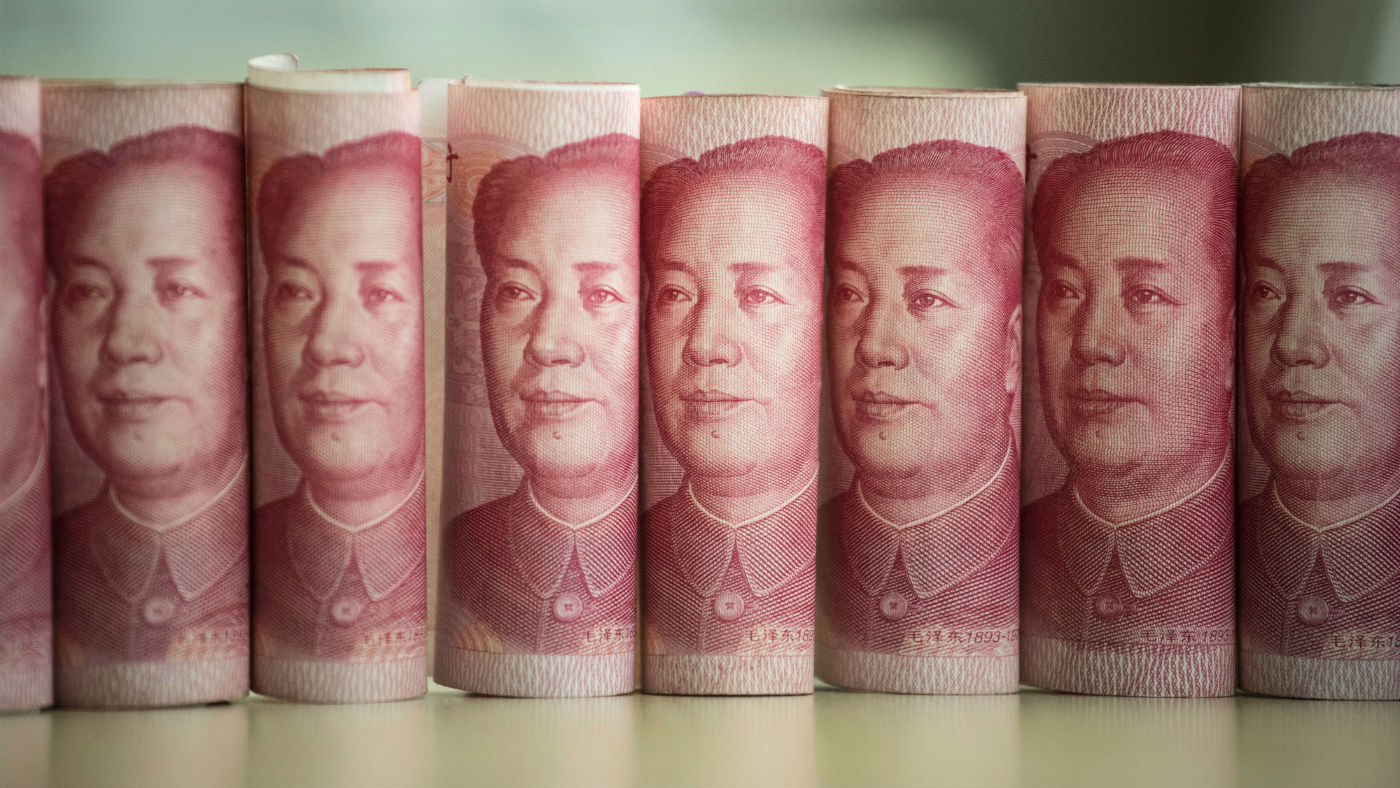Will release of $109bn reserve boost China’s flagging economy?
Central bank slashes reserve requirements, freeing up cash for infrastructure and businesses

A free daily email with the biggest news stories of the day – and the best features from TheWeek.com
You are now subscribed
Your newsletter sign-up was successful
China has slashed reserve requirements for the country’s banks, freeing up an estimated $109 billion of extra cash for infrastructure and investment, in a bid to bolster its vulnerable economy.
Amid signs higher US interest rates and fears of a global trade war are having an impact on the world’s second-largest economy, China’s central bank hopes cutting the reserve requirement ratios (RRRs) by 1% from 15 October will lower financing costs and spur growth.
It is the fourth time this year the People’s Bank of China has cut the reserve ratio, “though this cut was bigger and broader than previous ones” reports the New York Times.
The Week
Escape your echo chamber. Get the facts behind the news, plus analysis from multiple perspectives.

Sign up for The Week's Free Newsletters
From our morning news briefing to a weekly Good News Newsletter, get the best of The Week delivered directly to your inbox.
From our morning news briefing to a weekly Good News Newsletter, get the best of The Week delivered directly to your inbox.
Yet investment growth remains at a record low and net exports continued to drag on growth in the first half of the year.
The cut will fill in the liquidity gap of banks and put no downward pressure on the yuan, the central bank said in a statement, as the country's monetary policy has not been eased.
There are sufficient conditions for the exchange rate to remain basically stable at a reasonable and balanced level, it added.
The move comes as officials have warned that trade frictions with the United States could shave as much as nearly one percentage point from China’s annual economic growth.
A free daily email with the biggest news stories of the day – and the best features from TheWeek.com
In September, the United States imposed tariffs on $200 billion worth of goods from China, dealing it a blow at a time when the country’s economy was already flagging.
Zhang Yi, chief economist at Zhonghai Shengrong Capital Management, said the cut suggested the central bank was worried about the impact of “external shocks” to markets such as the one delivered last week by US Vice President Mike Pence’s criticism of Beijing.
While external factors have certainly played a factor, “the signs of deepening economic troubles have been showing for months” says the New York Times.
Consumers are spending less, infrastructure investment - a pillar of the Chinese economy - has slowed significantly since the start of the year, and companies have defaulted on their bonds in larger numbers.
In response, officials have pledged to pump billions of dollars into infrastructure projects, shored up the value of the currency and moved to backstop a plunging stock market.
Coming on the final day of the National Day holiday, the South China Morning Post says “the central bank’s announcement may also serve as a shot in the arm for the China’s stock market when trading resumes on Monday morning”.
Yet “it will also raise fears that Beijing – under pressure from the higher dollar and tariffs – is again delaying plans to reduce huge debt in the Chinese economy in favour of a short-term fix to stabilise growth”, reports The Guardian.
-
 Local elections 2026: where are they and who is expected to win?
Local elections 2026: where are they and who is expected to win?The Explainer Labour is braced for heavy losses and U-turn on postponing some council elections hasn’t helped the party’s prospects
-
 6 of the world’s most accessible destinations
6 of the world’s most accessible destinationsThe Week Recommends Experience all of Berlin, Singapore and Sydney
-
 How the FCC’s ‘equal time’ rule works
How the FCC’s ‘equal time’ rule worksIn the Spotlight The law is at the heart of the Colbert-CBS conflict
-
 Will increasing tensions with Iran boil over into war?
Will increasing tensions with Iran boil over into war?Today’s Big Question President Donald Trump has recently been threatening the country
-
 Corruption: The spy sheikh and the president
Corruption: The spy sheikh and the presidentFeature Trump is at the center of another scandal
-
 Rubio boosts Orbán ahead of Hungary election
Rubio boosts Orbán ahead of Hungary electionSpeed Read Far-right nationalist Prime Minister Viktor Orbán is facing a tough re-election fight after many years in power
-
 Greenland’s capital becomes ground zero for the country’s diplomatic straits
Greenland’s capital becomes ground zero for the country’s diplomatic straitsIN THE SPOTLIGHT A flurry of new consular activity in Nuuk shows how important Greenland has become to Europeans’ anxiety about American imperialism
-
 Epstein files topple law CEO, roil UK government
Epstein files topple law CEO, roil UK governmentSpeed Read Peter Mandelson, Britain’s former ambassador to the US, is caught up in the scandal
-
 Iran and US prepare to meet after skirmishes
Iran and US prepare to meet after skirmishesSpeed Read The incident comes amid heightened tensions in the Middle East
-
 Which way will Trump go on Iran?
Which way will Trump go on Iran?Today’s Big Question Diplomatic talks set to be held in Turkey on Friday, but failure to reach an agreement could have ‘terrible’ global ramifications
-
 EU and India clinch trade pact amid US tariff war
EU and India clinch trade pact amid US tariff warSpeed Read The agreement will slash tariffs on most goods over the next decade